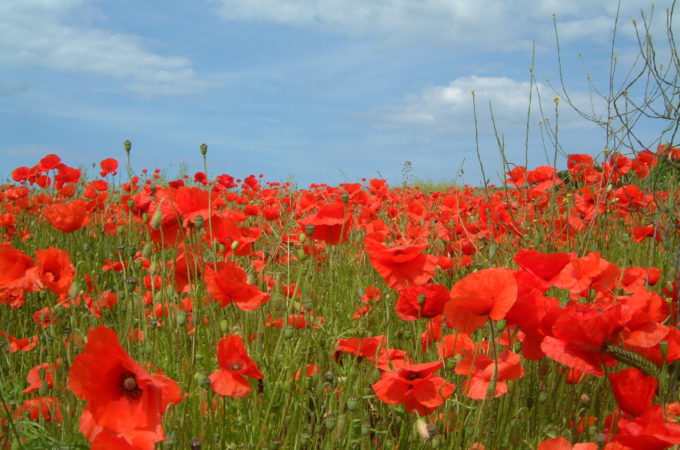Remembrance Day is a significant day in the lives of many who endured the challenges of living during war times. As benefactors of their sacrifice, we sometimes forget that peace is a gift and the high price that was paid for it. Today we have young soldiers who are returning from war, many of whom are returning with a disability. “Centres of Excellence’ across our country will be opening to provide short and long term rehabilitation treatment for our returning soldiers. I remain hopeful that funding will be available in order to meet their life long needs, including retraining, reintegration into society, accessible accommodation and counselling support. It is not only remembering their sacrifice but also ensuring that they have full funding and timely access to goods and services for their rehabilitation and integration in to their communities. They deserve no less.
Veterans Independence Program
The Veterans Independence Program (VIP), developed in 1981, is a National Program that assists veterans to remain independent in their own homes. The primary caregivers (including a spouse, common-law partner, adult child or another individual) who were taking care of the veteran at the time of their death or admission to long-term care can also qualify to receive these benefits.
Eligible survivors may receive housekeeping and/or grounds maintenance benefits. As well, housekeeping services may include: vacuuming; laundry; making and changing beds; cleaning floors;dusting and general picking up; kitchen and bathroom cleaning; meal preparation; appliance cleaning;washing and changing windows; and errand services to purchase food, do banking, pay bills. Ability to access the services is dependent on health needs and whether these services are available to the veteran through some other governmental program.
Lest We Forget…..
- Tips for Keeping Your Brain Young: Get enough sleep. Older adults don’t need less sleep than younger adults.
- Getting less than 7 or 8 hours of sleep at night can make it harder to concentrate and remember.
- Get rid of stress Over time, stress can make it hard to get a good night’s rest. Stress can also make it harder to concentrate, learn and remember.
- Exercise, prayer and meditation are good stress relievers.
- Think, think, think The more you use your brain, the better it’ll work. Read.
- Do that crossword puzzle. Play bridge. Join a discussion group at a senior center or church. Take a class at your local community college. Learn to play the piano or speak another language.
- Socialize Spending time with other people also seems to give your brain a boost. Find ways to meet and get to know others. Join a club.
- Volunteer. Try a part-time job.
- Eat right A diet that is low in saturated fat (the kind found in fried foods,butter, cheese, beef and pork) but rich in fruits and vegetables and B vitamins is good for your brain. Your diet should also include a couple of servings of fish, especially salmon, tuna, sardines, and mackerel, each week. These fish are high in omega-3 fatty acids, which are good fats that your brain needs. Ask your doctor or nurse if you should also take multiple vitamin daily.
Source: Foundation for Health in Aging
Established by the American Geriatrics Society


4 Comments
Jill Nelson
November 11, 2019 - 3:15 pmHi Audrey,
Such a great and topical post!
My first job in fundraising was for the Canadian Paraplegic Association (now Spinal Cord Injury Ontario.) It was founded by veterans of WWII, and I was honoured to meet & get to know several of the founding veterans who were elderly but still full of intelligence and determination. In the 1940’s they had returned from the battlefield paralysed, but rejected the expectation of the time that they would sit in hospitals and be “patients” for the rest of their lives — they wanted to have purpose and contribute to society. So they arranged for properly mobile wheelchairs, and lived full lives. Their efforts created the employment centres, advocacy and peer counselling services of CPA, and great rehabilitation centres across the country, one local one is Lyndhurst hospital.
We can’t even begin to imagine the sacrifices, horror, and resilience of people who’ve experienced and survived war, whether as soldiers or civilians. In my mind that includes all those refugees and immigrants to come to Canada to start over here. We who are so lucky to live in peace (so far) owe them so much.
Audrey
November 11, 2019 - 3:46 pmThank you Jill. Yes- we are very fortunate.
Malcolm Burrows
November 11, 2019 - 3:47 pmAudrey – Thank you for the great post and Jill thank you for the charitable sector history note. Many of the great health charities – including CNIB and Sunnybrook – grew out of the domestic response to the horrors of war.
Malcolm
Anne MacKay
November 11, 2019 - 10:07 pmWell done, Audrey. You made me think of some of the wise, gentle men I’ve know as volunteers who were also veterans. They were so focussed on continuing to make life easier for others, without judgement of those who sought help. They were great teachers and very fine examples.
Thank you for your reminder.
Anne